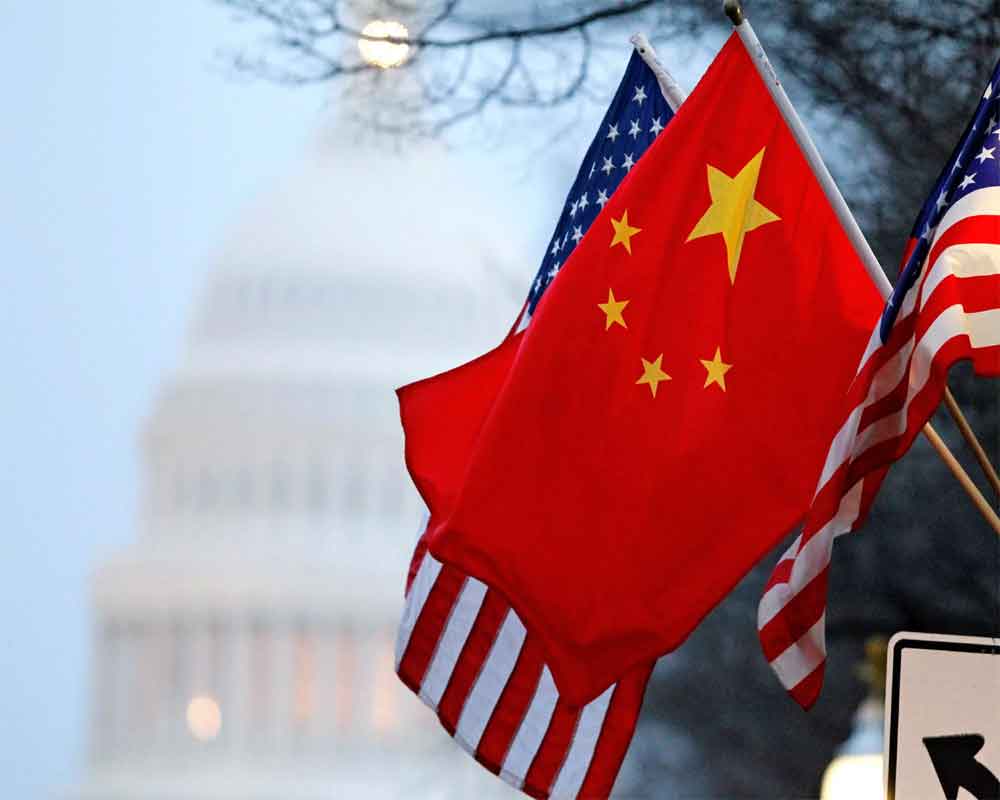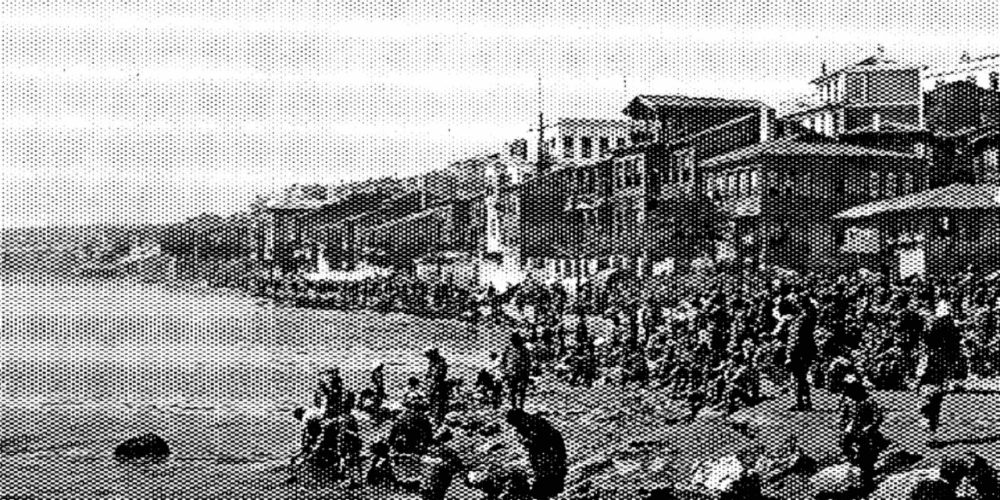Understanding The Economic Ramifications Of A U.S.-China Tariff Rollback

Table of Contents
Impact on U.S. Consumers
A U.S.-China tariff rollback would have a profound impact on American consumers. The primary effect would be a decrease in the cost of goods.
Reduced Prices for Goods
The removal of tariffs would directly translate into lower prices for consumers on a wide range of goods currently subject to import duties. This would lead to increased purchasing power and improved consumer confidence.
- Electronics: Smartphones, laptops, and televisions are just a few examples of electronics that would likely see price reductions.
- Clothing and Apparel: Consumers could expect lower prices on clothing and footwear imported from China.
- Furniture and Home Goods: The cost of furniture and home décor items could also decrease significantly.
The current tariff burden on consumer goods is substantial. According to [cite a relevant source with statistics on the cost of tariffs to consumers], tariffs have added an estimated [insert percentage or dollar amount] to the cost of [specific goods]. A rollback would directly alleviate this burden.
Increased Consumer Spending
Lower prices stimulate consumer spending, acting as a powerful engine for economic growth. With more disposable income, consumers are likely to increase their spending on various goods and services.
- Potential increase in GDP: Economic models suggest a significant boost in GDP growth as a result of increased consumer spending following a tariff rollback. [Cite a relevant economic model or study].
- Positive effects on retail sectors: Retail sectors, from online marketplaces to brick-and-mortar stores, would experience a surge in sales.
The relationship between consumer prices and spending is well-documented. [Cite data illustrating the correlation between lower prices and increased consumer spending].
Effects on U.S. Businesses
The implications of a U.S.-China tariff rollback extend beyond consumers, significantly impacting U.S. businesses.
Increased Profit Margins for Importers
Reduced tariffs would directly translate into higher profit margins for businesses importing goods from China. This is particularly beneficial for importers who have been shouldering the burden of increased costs due to tariffs.
- Retail: Retail businesses importing consumer goods would see a significant increase in profitability.
- Manufacturing: Manufacturing companies that rely on imported Chinese components would experience reduced input costs.
Analysis of import costs before and after tariff implementation demonstrates the significant impact of tariffs on business profitability. [Cite data or analysis illustrating the impact of tariffs on import costs].
Restructuring of Supply Chains
Following a tariff rollback, businesses may choose to restructure their supply chains. Companies that shifted production to alternative locations due to tariffs might consider re-evaluating these strategies.
- Advantages of reshoring/nearshoring: Reduced transportation costs, improved control over production, and potentially enhanced brand image.
- Disadvantages of reshoring/nearshoring: Higher labor costs in some regions, potential logistical challenges.
[Cite case studies of companies that have already shifted or are considering shifting their supply chains as a result of tariffs or the potential for a tariff rollback].
Increased Competition
A U.S.-China tariff rollback could increase competition in the U.S. market. The reduced costs associated with importing Chinese goods could make them more competitive, benefiting consumers through lower prices and greater product variety.
- Increased competition in specific sectors: Examples include electronics, apparel, and furniture markets.
- Market share analysis: Data illustrating how the removal of tariffs could shift market share among domestic and foreign competitors. [Cite relevant market analysis].
Implications for the Chinese Economy
A U.S.-China tariff rollback would also have significant implications for the Chinese economy.
Increased Exports to the U.S.
The most immediate impact would be a substantial increase in Chinese exports to the U.S. This would lead to increased revenue for Chinese businesses and contribute to overall GDP growth.
- Specific sectors likely to experience a boost in exports: Manufacturing, textiles, and agricultural products.
- Historical data on Chinese exports to the U.S.: Illustrate the previous levels of trade before the imposition of tariffs. [Cite relevant trade data].
Job Creation in China
The increased demand for Chinese goods would likely lead to job creation in export-oriented industries.
- Industries likely to benefit: Manufacturing, agriculture, and related logistics sectors.
- Employment statistics related to export-oriented industries: Show the correlation between export growth and employment. [Cite relevant employment data].
Geopolitical Considerations
Beyond the purely economic implications, a U.S.-China tariff rollback would have significant geopolitical consequences.
Improved U.S.-China Relations
The de-escalation of trade tensions could lead to improved diplomatic ties between the two countries, fostering greater cooperation on other global issues.
Global Economic Stability
A U.S.-China tariff rollback would contribute to greater global economic stability by reducing uncertainty and fostering more predictable trade relationships.
Conclusion: Assessing the Economic Ramifications of a U.S.-China Tariff Rollback
A U.S.-China tariff rollback offers significant potential economic benefits for both nations. For the U.S., it could lead to lower consumer prices, increased consumer spending, higher profit margins for importers, and increased competition. For China, it would likely result in a surge in exports and job creation. However, businesses may need to adjust their supply chains, and the geopolitical implications are significant. Understanding these multifaceted economic ramifications is crucial for policymakers and businesses alike. To stay informed about the evolving U.S.-China trade relationship and the potential implications of a future U.S.-China tariff rollback, we encourage you to continue your research using reputable sources such as [link to relevant government websites, research institutions, and news sources]. The future of global trade depends on a careful consideration of the impacts of a U.S.-China tariff rollback and its potential consequences.

Featured Posts
-
 Las Vegas Aces Release Forward In Preseason Cuts
May 13, 2025
Las Vegas Aces Release Forward In Preseason Cuts
May 13, 2025 -
 Nba Tankathon Miami Heat Fans New Off Season Obsession
May 13, 2025
Nba Tankathon Miami Heat Fans New Off Season Obsession
May 13, 2025 -
 A Critical Analysis Of The Da Vinci Codes Impact On Popular Culture
May 13, 2025
A Critical Analysis Of The Da Vinci Codes Impact On Popular Culture
May 13, 2025 -
 Norfolk Catholics District Final Loss To Archbishop Bergan
May 13, 2025
Norfolk Catholics District Final Loss To Archbishop Bergan
May 13, 2025 -
 Nea Ereynitika Dedomena Gia Ton Megalo Kataklysmo Tis Mesogeioy
May 13, 2025
Nea Ereynitika Dedomena Gia Ton Megalo Kataklysmo Tis Mesogeioy
May 13, 2025
